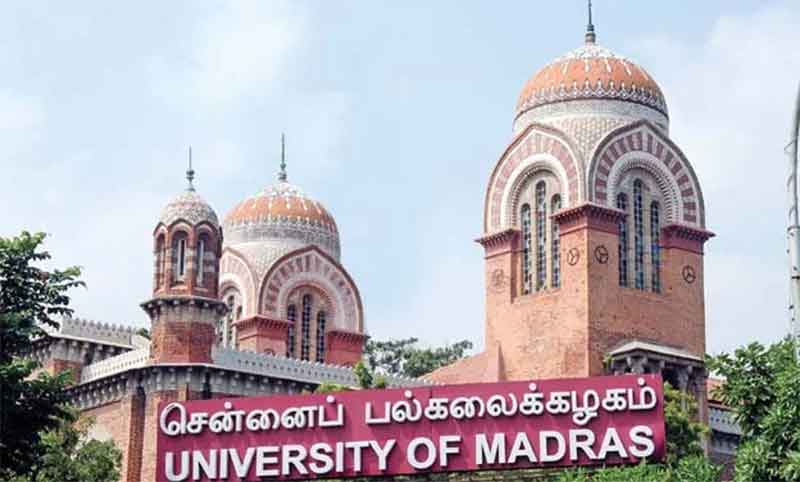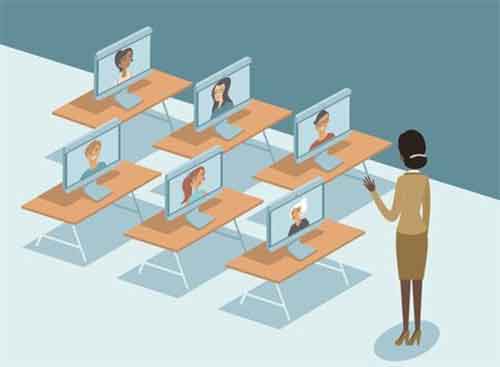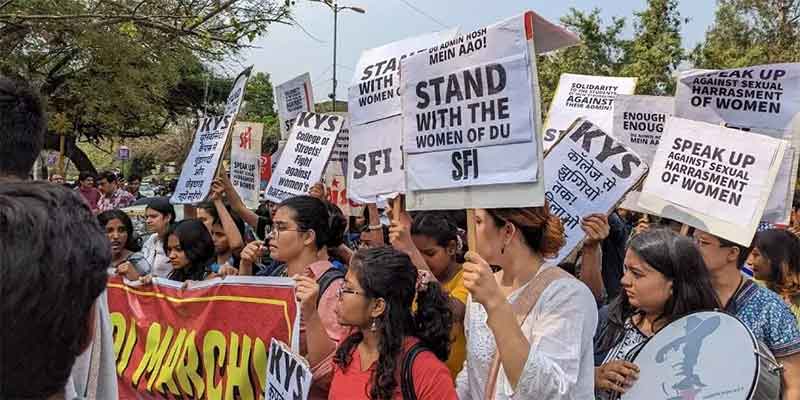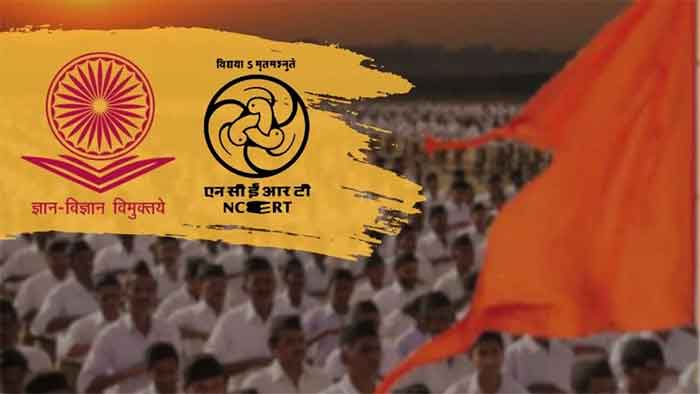
Global Classroom is a novel and innovative way to gain international experience, virtually, from wherever you are! When talking about Global Classroom we mean a unique class consisting of students from two or more different countries. Even while students in a virtual classroom are divided by physical space, they are connected by being involved in the identical practical activities, learning the similar material and discussing it in an open manner. Contrasting the traditional class, a virtual class allows the students to log in and out any time, still maintaining a feeling that they are united in a common, shared initiative through cyberspace.
Imagine a world where students from Chicago take a virtual field trip to the pyramids in Egypt with students from China, learning from a teacher who is an expert in her field. In this future, education will become borderless, and geographical barriers will be broken. The classroom will no longer be tied down by physical constraints; it will be a true classroom in the cloud. I firmly believe that when children can learn about the world around them by meeting other children from across the world and experiencing other cultures (even virtually), they are on the path to becoming global citizens. 1
In Global Education projects, internet tools are usually used for customary aims – to teach students where to find useful information, how to use it properly, how to research efficiently, etc. In the case of distance education, particularly in the social sciences, electronic online tools facilitate students’ active engagement in their studies even while not necessarily being physically close to a single college or to each other. Distance learning is a way to teach students from different regions and even countries all together as if they were enrolled in one physically exclusive class room. Therefore, a Global Classroom is not only invisible, but also very plausible. In it, participants reassure one another by sustaining intellectual contact, debating issues, exchanging opinions, completing joint tasks and the like.
For teachers, assisting their students to learn with and from their peers abroad is a most satisfying reward. Online dialogue is one of the most interesting one to students as citizens of an evolving knowledge-based global society.
In Global Classroom students learned from online mini-lectures written by the professors, and from additional assignments based on electronic texts. A Student-Led Discussion discussing common topics raised by the readings and also current events in the world, all of which helped them understand foreign (‘other’) cultures, and historical backgrounds.
In teaching evaluations we will get first-hand information about each country and they did not experience common problems. This collaborative, intercontinental, distance-learning experience has also a lesson to democracy and human rights. Ground-breaking synergy is created when higher-education and the communities unite to tackle educational challenges and achieve common goals.
*Historical Evolution:*
Way back about one hundred years ago, Rabindranath Tagore, a visionary poet of India imagined a globally interconnected world. On 22 December 1921, Visva-Bharati was formally founded by Tagore; its global scope was obvious from the motto of the university, ‘Where the world makes its home in a single nest’. The constitution of Visva-Bharati is as follows: • To study the mind of man in its realization of different aspects of truth from diverse points of view. • To bring into more intimate relation with one another through patient study and research, the different cultures of the East on the basis of their underlying unity. • To approach the West from the standpoint of such a unity of the life and thought of Asia. • To seek to realize in a common fellowship of study the meeting of East and West and thus ultimately to strengthen the fundamental conditions of world peace through the free communication of ideas between the two hemispheres. • And with such ideals in view to provide at Santiniketan, a centre of culture where research into the study of the religion, literature, history, science and art of the Hindu, Buddhist, Jain, Zoroastrian, Islamic, Sikh, Christian and other civilizations may be pursued along with the culture of the West, with that simplicity of externals which is necessary for true spiritual realization, in amity, good fellowship and cooperation between the thinkers and scholars of both Eastern and Western countries, free from all antagonisms of race, nationality, creed or caste and in the name of one supreme being who is Shantam, Shivam, Advaitam. 2
During the 1990s, the development of the Internet gave rise to ideas such as the global village, and novel ways of teaching and learning involving hypertext, multimodality and virtual classrooms. There are many recent precedents for the Global Classroom project: it was initiated at the Earth Institute, Columbia University, in 2008 by the members of the MacArthur Foundation-funded International Commission on Education for Sustainable Development Practice. The Commission brought together 20 prominent specialists from around the world to consider novel types of multidisciplinary educational projects to address the practical challenges of sustainable development. The Global Classroom has addressed a broad range of essential issues, including health, economics, policy, agriculture, ethics, and education. All course materials, including reading materials, and assignment questions, should be available to participants of Global Classroom. Students from around the world were assigned the same readings and then can join their classmates for live sessions with international professionals.
*What should be the Ingredients of Global Classroom?*
The educational system deals primarily in what E. F. Schumacher called it “convergent problems,” not “divergent problems.” The former are linear and thereby amenable to scientific or technological solutions. The latter are more like dilemmas that are, by definition, unsolvable but avoidable with foresight. Increasingly, our basic problems are of the latter sort: they are divergent moral and political questions “refractory to mere logic and discursive reason.” 3
One could therefore say that the global classroom is a place where the educational uses of technology are coming together in terms of development and application and new ways of teaching and learning are becoming apparent. At the cutting edge of this plane of change is the relationship between tacit and designated learning opportunities that new technologies give rise to. For example, the learning communities that one finds online or in social networking software programs are at the same time part of the complex identity units and distribution facilities for ideas about current culture. Teachers in these situations need to be aware how new forms of language, values, group dynamics and shifts in behavior will change the learning requirements of their cohorts. 4
We need their assistance to imagine a non-violent world, one free of nuclear weapons. We need educators and educational institutions that nurture a profound yet practical awareness of our interrelatedness in the evolving enterprise of life. The repair and renewal of educational institutions, however, will require a more critical assessment of education that keeps in the mind following:
- Ecological disorder reflects a prior disorder in the way we think and what we think about; • Humans are fast thinkers but slow learners;•It is possible to educate someone beyond their level of comprehension; •Not all knowledge is good, and not all of it can be deployed responsibly in a world of feedback loops, leads and lags, surprises, and longtime lapses between cause and effect; •New knowledge is not necessarily better than old knowledge rediscovered, i.e., “slow knowledge.” 5
We need the help of the new generation to restore respect for truth, facts, logic, data, and history. We need their creative powers to help recalibrate failing institutions, constitutions, and economies with the way Earth works as a physical system. We need their example as models of solar-powered, ecologically designed communities. We need their help to equip the young to be citizens in a civic community and in an ecological order—a generation of “radical professionals” competent dual citizens with purpose, stamina, and vision. 6
While international schools have always enrolled students with different racial, ethnic, and linguistic backgrounds, globalization and massive immigration trends are making the student populations of nearly every school increasingly diverse. What was once the particular challenge of international school teachers now faces us all? To accommodate the new makeup of classrooms and the disappearing distances between cultures, teachers need to focus on each student’s learning needs while simultaneously imparting global competence—the ability to understand other cultures, to respect and appreciate differences, and to move gracefully and graciously between cultures. To see our students succeed, we all must embrace this paradox of personalizing learning in the global classroom. 7
Education systems, schools, and teachers have an urgent and undeniable obligation to inculcate “international mindedness” in their students. Students are our partners in learning, and this partnership can be dramatically illustrated in the global classroom, where cultural and learning diversity offer the potential for rich and dynamic interaction. 8
What does cultural competence look like in a global classroom? We believe that it is expressed in an attitude of curiosity, exploration, and respect. We come to know ourselves culturally through understanding the cultures of others. The multitude of cultures and perspectives present in the global classroom invite us to think beyond the limits of our own systems. In order to genuinely respect other cultures, we need to question our assumption about what is “normal” or “right.” 9
The new generation would surely demand that we stop using the atmosphere as a dump and that we preserve the world’s forests, rivers, soils, seas, mountains, life-forms, and grasslands. Definitely, they would ask us to enlarge the democratic vista to include them, their great-great-grandchildren, and other species—an intergenerational, interspecies democracy of sorts. They would anticipate us to have created a hard-wearing foundation of well-considered personal rights and responsibilities, tolerance for differences and dissent.
Global Schools need to focus on intellectual connectedness, pluralism and diversity that complement rather than oppose, and productive learning that can occur when difference is recognized and interwoven in learning. In intercultural communication classes, a vibrant component is the opportunity to engage in dialogue with students from diverse cultures. In many classes this is possible if there are students from varied cultures.
Students in a global classroom engage in learning that is participatory, shared and connected. By designing and facilitating realistic social studies learning for such environments, students are able to develop a greater understanding of who they are as global citizens. Designing and facilitating genuine learning in social studies through a global classroom approach enables students to develop a greater understanding of who they are as global citizens.
Every child deserves a global classroom that is accessible, affordable, and personalized. The reason why humans are able to create a better world is that we have education. Every tiny change and innovation in education may have far-reaching significance for human development. 10
The character and uses of the global classroom are vital to the future of liberal democratic and pluralistic society. The twenty-first century calls for pedagogies that cultivate integrated knowledge and global citizenship. The global classroom may be characterized as a plane of transformation involving personal and group identities learning through technological mediation. An intelligible educational policy and knowledge framework may be developed in order to prepare populations for new curricula. The character and uses of the global classroom are vital to the future of liberal democratic and pluralistic society.
*Bibliography:*
- Lily Jones, The Global Classroom, New York: Skyhorse, 2019, p.109
- Kumkum Bhattacharya, Rabindranath Tagore- Adventure of Ideas and Innovative Practices in Education, New York: Springer, 2014, p.64
- E. F. Schumacher, Guide for the Perplexed, New York: Harper & Row, 1977, p.128
- Darren L. Pullen, David R. Cole, Multi-literacies and Technology Enhanced Education: Social Practice and the Global Classroom, New York: Information Science reference, 2010, p.16
- Erwin Chargaff, “Knowledge without Wisdom,” Harpers, May 1980, pgs.41-48
- Jeff Schmidt, Disciplined Minds, Lanham, MD: Rowman & Littlefield, 2000, pgs.265-280
- William Powell, Ochan Kusuma-Powell, How to Teach Now, Vantura: ASCD, 2011, p.2
- William Powell & Ochan Kusuma-Powell, How to Teach Now, Vantura: ASCD, 2011, p.19
- William Powell & Ochan Kusuma-Powell, How to Teach Now, Vantura: ASCD, 2011, p.83
- Lily Jones, The Global Classroom, New York: Skyhorse, 2019, p.110
Biographical sketch:
V.A. Mohamad Ashrof is one among the Muslim scholars of Kerala who is regularly publishing articles and papers dealing with Islam and Contemporary Affairs. He has worked as the Executive Editor of Al-Harmony, a Quarterly Journal on Islam and Thought and Ethics, for 10 years. He is the joint secretary of Forum for Faith and Fraternity- a Muslim think tank based in Kochi. He is the author of 2 English Books (‘Islamic Dimensions’, ‘Islam and Gender Justice: Questions at the Interface’) and 2 Malayalam books (The Host and the Hunter: Critique of Anand’s writings). One Malayalam book ‘Christian Zionism: Critique’ has attained great acclamation from the scholarly world.
(V.A. Mohamad Ashrof is the Joint Secretary of Forum for Faith and Fraternity Kerala and receives his mail at: [email protected])
















































